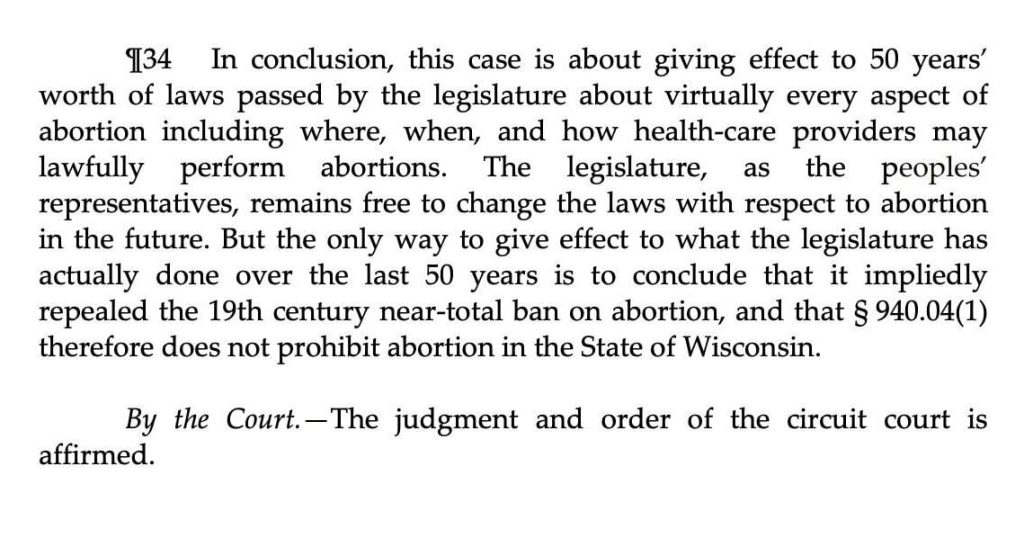(The Center Square) – Wisconsin’s Supreme Court overturned the state’s 1849 abortion law with a Wednesday ruling, stating that legislation since then should supersede and replace the law in a 4-3 decision.
The ruling was written by Rebecca Dallet with concurrence by Jill Karofsky, Ann Walsh Bradley and Janet Protasiewicz. In dissent were Annette Ziegler, Rebecca Bradley and Brian Hagedorn.
“We conclude that comprehensive legislation enacted over the last 50 years regulating in detail the ‘who, what, where, when, and how’ of abortion so thoroughly covers the entire subject of abortion that it was meant as a substitute for the 19th century near-total ban on abortion,” the ruling said.
The ruling came after a 2023 ruling from Dane County Judge Diane Schlipper stating the 1849 law that bans almost all abortions in the state only applies to people who intentionally kill a baby, what she called feticide, and it does not apply when a woman agrees to end her pregnancy.
“The majority opinion is a jaw-dropping exercise of judicial will, placing personal preference over the constitutional roles of the three branches of our state government and upending a duly enacted law,” Ziegler wrote in dissent. “In this dangerous departure from our constitutional design, four members of the court make up and apply their own version of implied repeal, failing to hew to any semblance of traditional judicial decision-making or jurisprudence.”
The challenge to the law came from Wisconsin Attorney General Josh Kaul, joined by the Department of Safety and Professional Services, the Medical Examining Board, and its chairman after the U.S. Supreme Court struck down Roe vs. Wade in 2022.
“Today is a win for women and families, a win for healthcare professionals who want to provide medically accurate care to their patients, and a win for basic freedoms in Wisconsin, but our work is not over,” said Wisconsin Gov. Tony Evers. “I will continue to fight any effort that takes away Wisconsinites’ reproductive freedom or makes reproductive healthcare, whether birth control, abortion, IVF, or fertility treatments, any less accessible in Wisconsin than it is today. That is a promise.”
Lawmakers updated the law in 1985, then again in 2015 under former Gov. Scott Walker.
“This marks a major victory for reproductive freedom following the uncertainty and harm to women’s health that have resulted from the U.S. Supreme Court’s overturning of Roe v. Wade,” Kaul said in a statement. “At a time when rights are endangered, this ruling is a powerful reminder of the importance of advocating for our freedoms.”
The law was a large topic in this spring’s Wisconsin Supreme Court race, where Susan Crawford defeated Brad Schimel. But the ruling came before Crawford takes office on Aug. 1.


